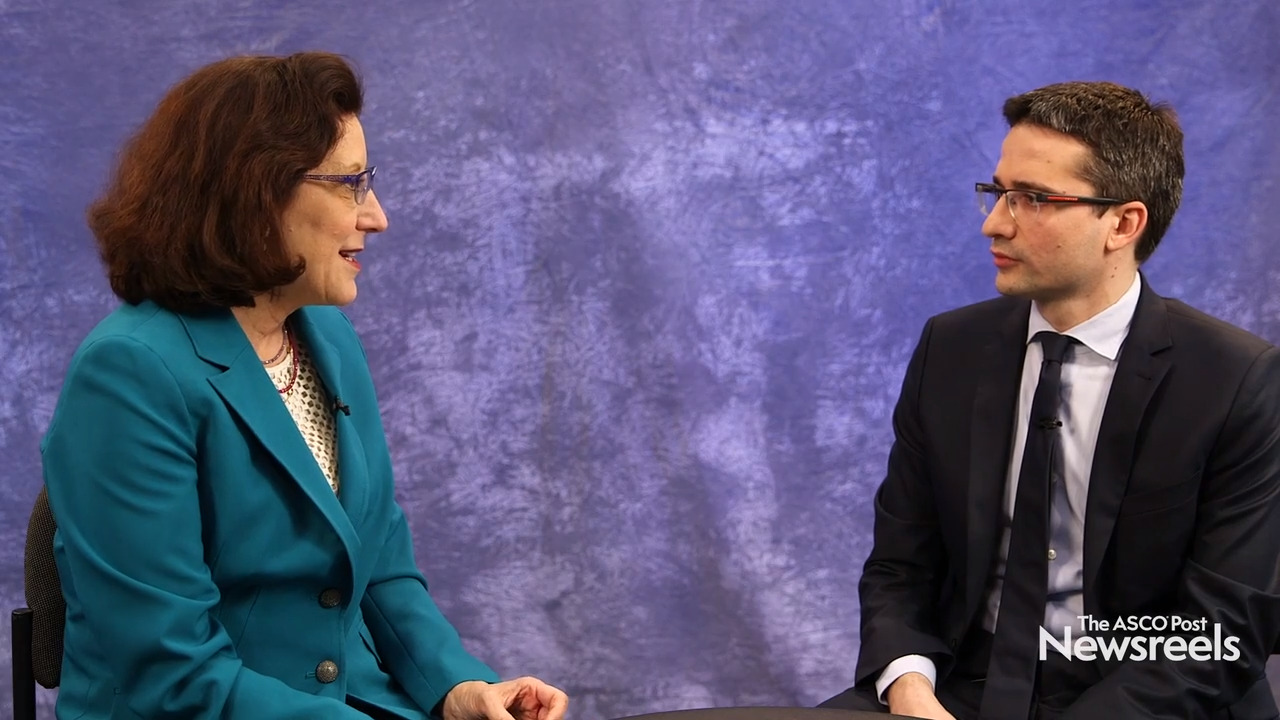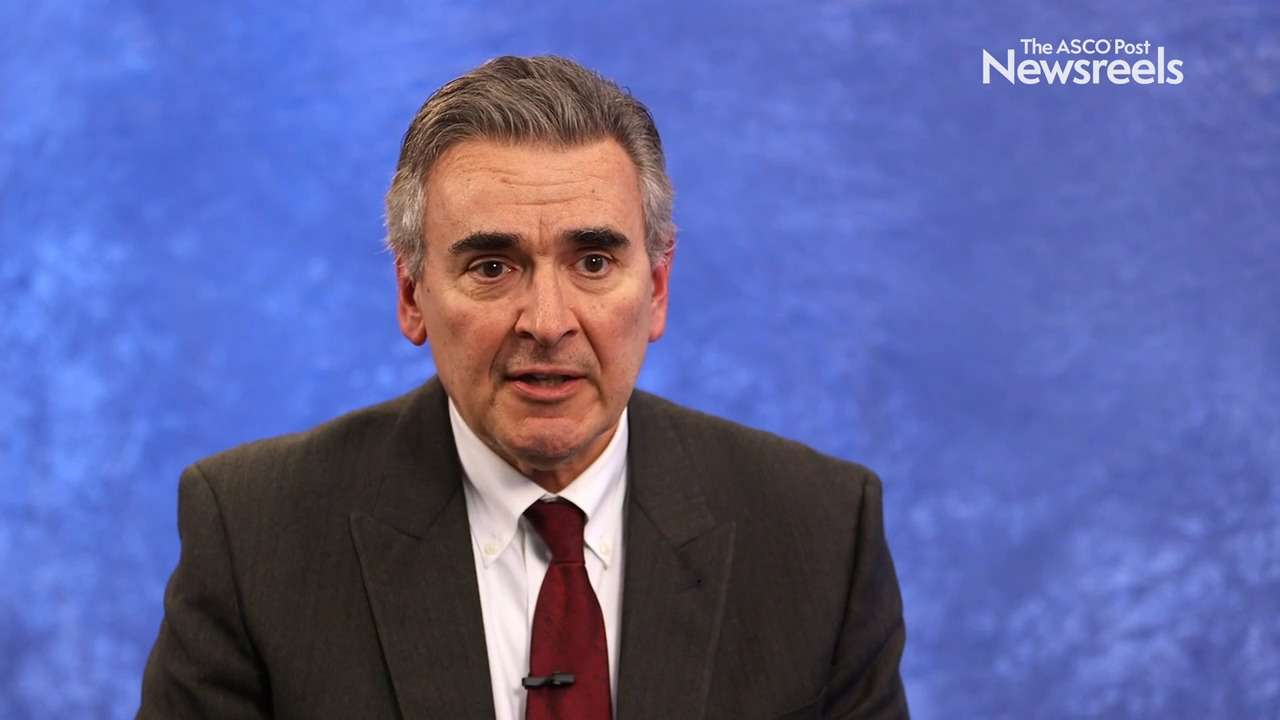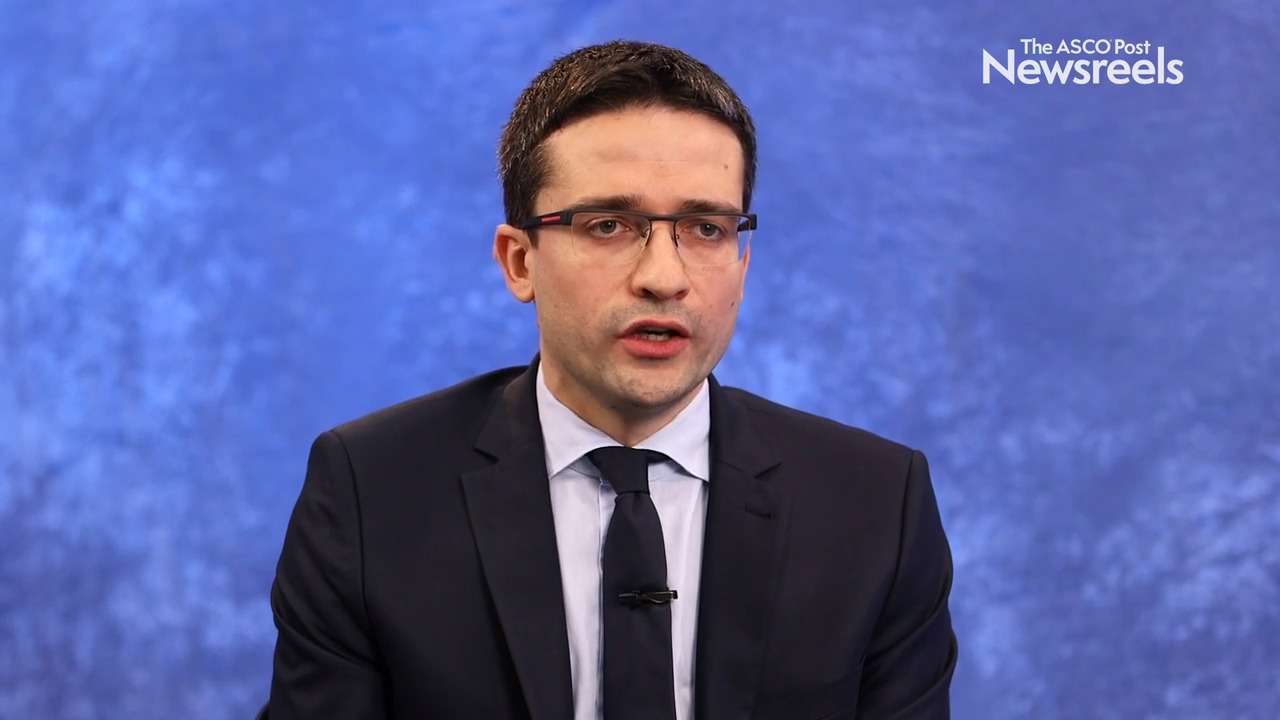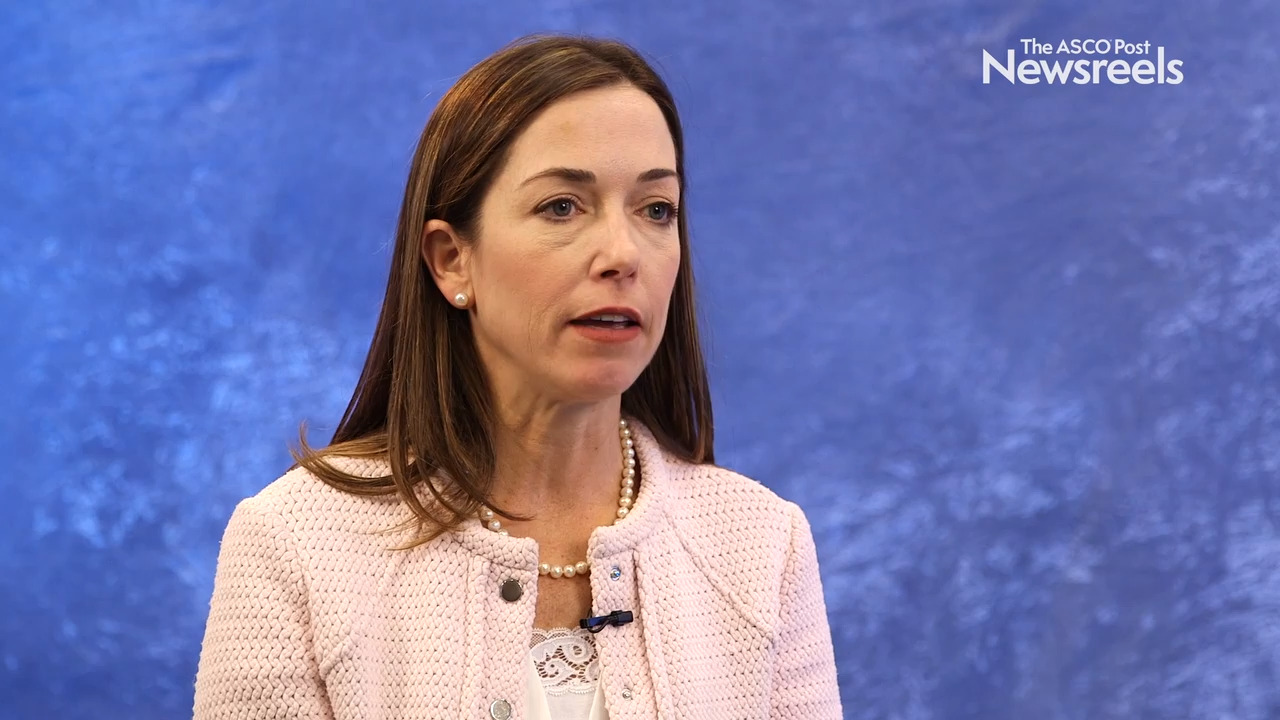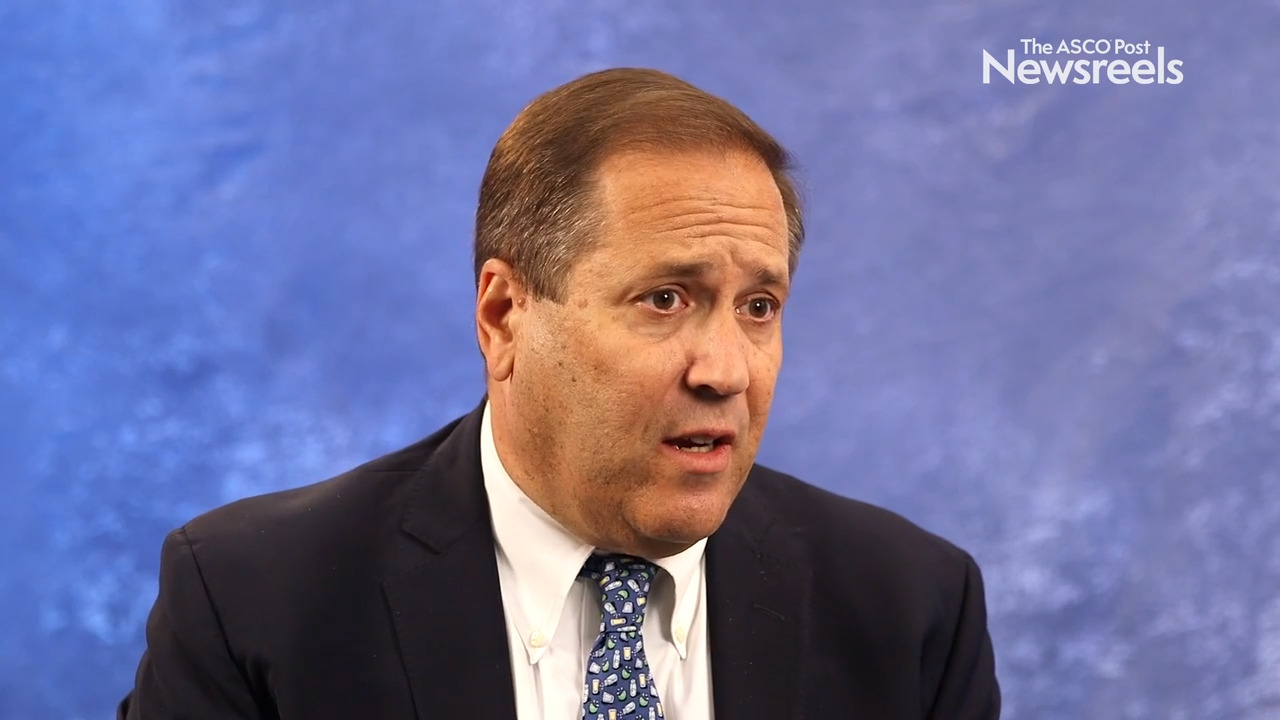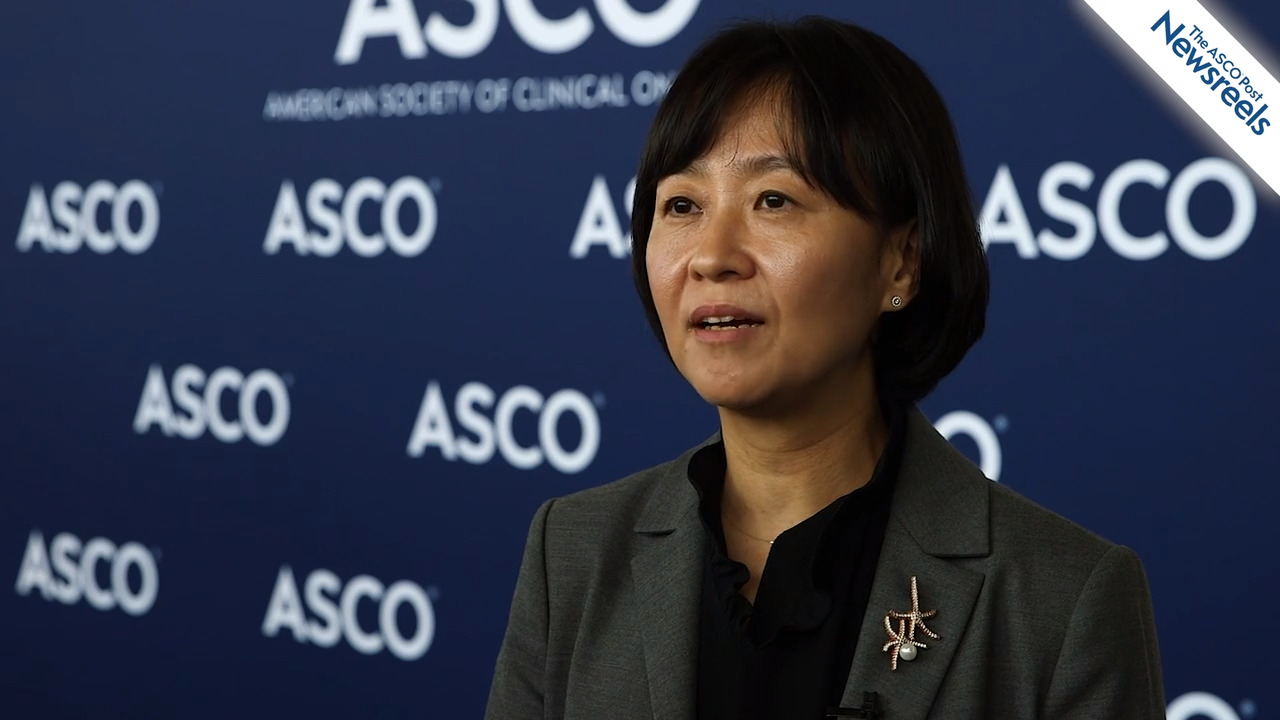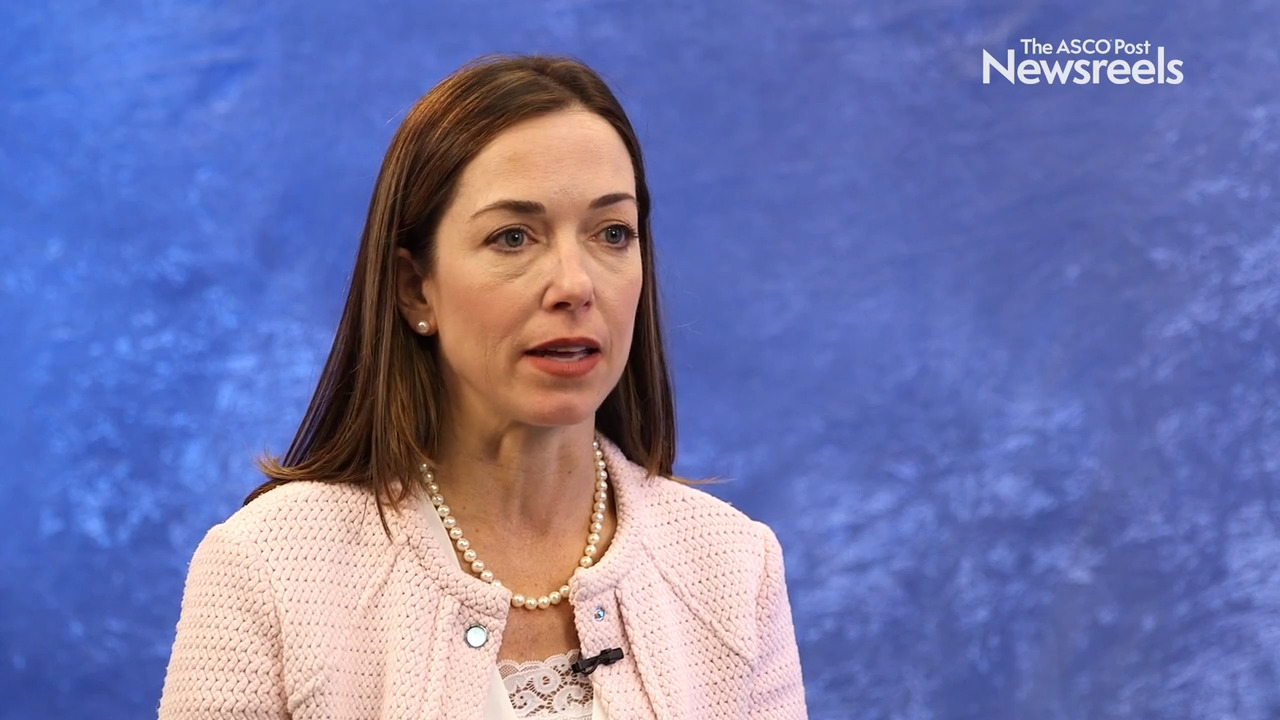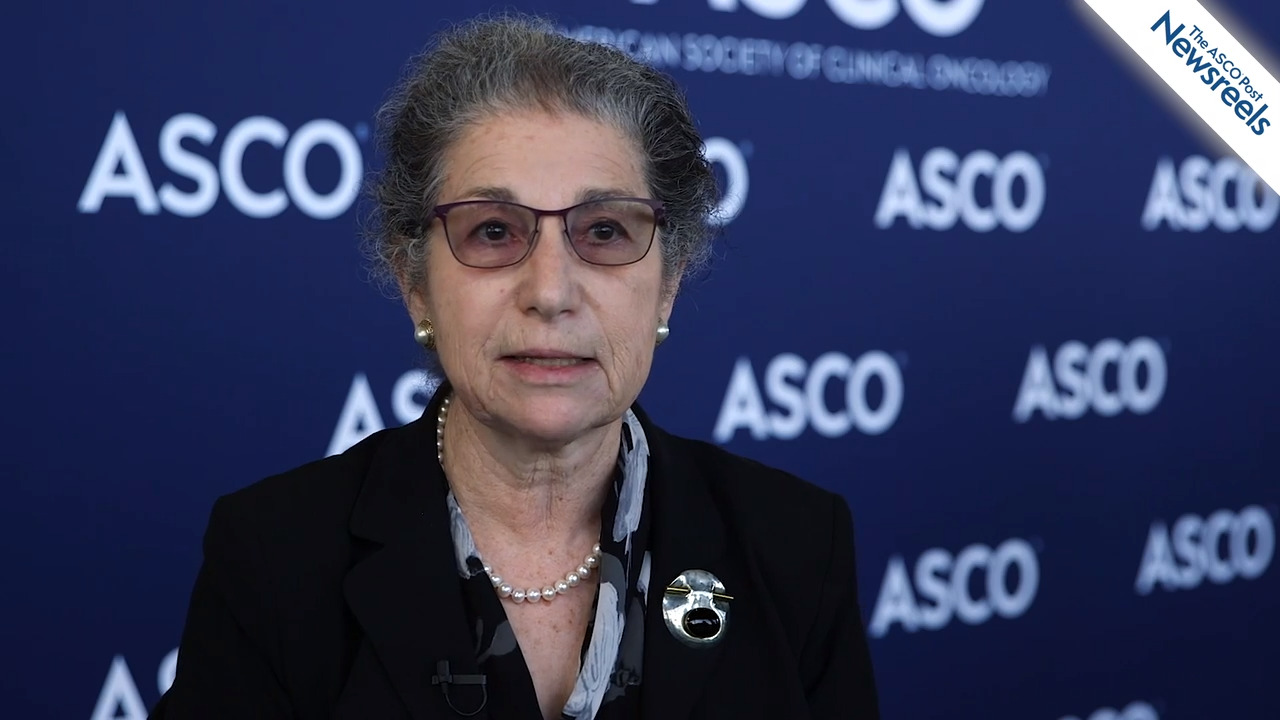Use of BI-RADS Breast Density and BCSC Risk to Identify Women for Discussion of Supplemental Imaging
In a study reported in JAMA Internal Medicine, Kerlikowske et al found that the combined use of Breast Imaging Reporting and Data System (BI-RADS) breast density and Breast Cancer Surveillance Consortium (BCSC)-defined risk for breast cancer may be an effective way of identifying women with dense...
Expert Point of View: Mark Pegram, MD, and Sandra Swain, MD, FASCO
Mark Pegram, MD, the Susy Yuan-Huey Hung Professor of Medical Oncology and Director of the Stanford Breast Oncology Program, said the Dana-Farber study “independently confirms that HER2 heterogeneity is a distinct clinical entity with lower levels of HER2 expression and pathologic complete...
Is Heterogeneity Within HER2-Positive Tumors Clinically Relevant?
Breast cancers that display heterogeneity of HER2 expression may represent a distinct subset of HER2-positive breast cancer that is associated with lower rates of pathologic complete response, according to a phase II study from Dana-Farber Cancer Institute. This trial evaluated HER2 heterogeneity...
Two Pivotal Studies in Breast Cancer Report Further Analyses
At the 2019 ASCO Annual Meeting, two pivotal breast cancer trials reported final or additional analyses: one confirmed the negative results seen in earlier reports,1 and the other supported a new survival benchmark.2 KRISTINE: Neoadjuvant T-DM1/Pertuzumab Sara A. Hurvitz, MD, of the David Geffen...
Timing of Postoperative Treatment After Diagnosis of Breast Cancer and Survival
When chemotherapy is recommended as part of a treatment plan, women with breast cancer should start postoperative treatment ideally within 4 months of their cancer diagnosis. New study findings published by Kupstas et al in the Annals of Surgical Oncology show delaying chemotherapy further is...
Neoadjuvant Chemotherapy Duration and Obesity May Be Associated With Increased Risk of Lymphedema in Some Women With Breast Cancer
In a cohort study reported in JAMA Surgery, Armer et al found that longer duration of neoadjuvant chemotherapy and increasing body mass index (BMI) were associated with increased risk of lymphedema in women with node-positive breast cancer who received neoadjuvant chemotherapy and axillary...
Metabolic Changes May Signal Development of Chemotherapy-Associated Cardiotoxicity
To learn more about the processes that lead to chemotherapy-associated cardiotoxicity, a team of researchers at Beth Israel Deaconess Medical Center (BIDMC) conducted a study to investigate whether early changes in energy-related metabolites in the blood—measured shortly after...
Role of Regulatory T Cells in Predicting Breast Cancer Relapse
Blood and intratumoral regulatory T-cell activity may one day provide a method for predicting breast cancer relapse, according to findings published by Wang et al in Nature Immunology. “This is the first success linking a solid tumor with blood biomarkers—an indicator of whether a...
Intervention to Promote Breast Cancer Surveillance in Childhood Cancer Survivors Who Received Chest Radiotherapy
In the EMPOWER trial, which took place within the larger Childhood Cancer Survivor Study (CCSS) and was reported in the Journal of Clinical Oncology, Oeffinger et al found that an intervention consisting of mailed educational materials followed by telephone-delivered counseling led to an increased...
FDA Approves New Trastuzumab Biosimilar
On June 14, the U.S. Food and Drug Administration (FDA) approved trastuzumab-anns (Kanjinti) for all approved indications of the reference product trastuzumab (Herceptin): for the treatment of HER2-overexpressing breast cancer and HER2-overexpressing metastatic gastric or gastroesophageal junction...
Does Radioactive Iodine Treatment for Hyperthyroidism Increase the Risk of Cancer Mortality?
Findings from a study of patients who received radioactive iodine treatment for hyperthyroidism show a modest association between the dose of treatment and long-term risk of death from solid cancers, including breast cancer. The study, led by researchers at the National Cancer Institute (NCI), was...
Mortality After Breast Cancer Among Childhood Cancer Survivors
In an analysis from the Childhood Cancer Survivor Study (CCSS) reported in the Journal of Clinical Oncology, Moskowitz et al found a significant increase in overall mortality among childhood cancer survivors who developed breast cancer vs matched controls. A numeric increase in breast cancer...
SOPHIA Trial Tests Margetuximab in Heavily Pretreated Patients With HER2-Positive Metastatic Breast Cancer
In the phase III SOPHIA trial of 536 heavily pretreated patients with HER2-positive metastatic breast cancer, the novel anti-HER2 antibody margetuximab plus chemotherapy led to significant improvements in progression-free survival, response, and clinical benefit compared with...
NALA Trial: Neratinib Plus Capecitabine Shows Benefit in Metastatic Breast Cancer
In the global phase III NALA trial, treatment of metastatic HER2-positive breast cancer with neratinib plus capecitabine significantly improved progression-free survival, delayed the time to intervention for central nervous system disease, and showed a trend toward improved overall survival vs...
Clinical Risk Enhances Utility of TAILORx Findings in Young Women With Breast Cancer
Clinical risk factors add prognostic information that complements the 21-gene recurrence score, according to a new analysis from the landmark TAILORx trial.1,2 The integration of clinical risk with the recurrence score provides greater precision in determining recurrence risk and guiding the use of ...
CLEOPATRA End-of-Study Analysis in Metastatic Breast Cancer: 37% Alive at 8 Years
The end-of-study analysis of the landmark CLEOPATRA trial shows that 37% of patients with HER2-positive metastatic breast cancer are still alive at 8 years, according to principal investigator Sandra M. Swain, MD, FACP, FASCO, Associate Dean for Research Development at Georgetown University Medical ...
Breast Cancer Screening With Addition of MRI to Mammography in Women With Familial Risk
The Dutch FaMRIsc study, reported in The Lancet Oncology by Saadatmand et al, found that the addition of screening magnetic resonance imaging (MRI) to mammography resulted in identification of more breast cancers—and identification at an earlier stage—vs mammography alone among women...
Final Analysis of the PHARE Trial: 6 Months vs 12 Months of Adjuvant Trastuzumab in HER2-Positive Breast Cancer
In the French phase III PHARE trial reported in The Lancet, Pivot et al found that noninferiority of 6 months vs 12 months of adjuvant trastuzumab combined with standard chemotherapy could not be demonstrated for disease-free survival in HER2-positive early breast cancer. An earlier interim...
Niraparib Plus Pembrolizumab in Advanced Triple-Negative Breast Cancer
In the phase II TOPACIO/KEYNOTE-162 trial reported in JAMA Oncology, Vinayak et al found evidence of activity of combined niraparib and pembrolizumab in a cohort of patients with advanced or metastatic triple-negative breast cancer, with higher response rates seen in patients with BRCA mutations or ...
Evidence Lacking That Denosumab Alters the Course of Breast Cancer
I am writing to provide personal context to my column on adjuvant denosumab or bisphosphonates for resected breast cancer, which appears on page 52 in this issue of The ASCO Post. I have been upset since 2013 that adjuvant zoledronate has been recommended for women with breast cancer onset after...
Denosumab Prevents Neither Breast Cancer Relapse Nor Death
The recently published report of Austrian Breast and Colorectal Cancer Study Group’s Study 18 (ABCSG-18)1 for the secondary endpoint of disease-free survival suggests that denosumab given in a low dose of 60 mg subcutaneously every 6 months during aromatase inhibitor adjuvant therapy is...
AACR Environmental Carcinogenesis: Study Finds Environmental Quality Linked With Distant/Metastatic Breast Cancer Risk
Although many risk factors increase a woman’s chance of developing breast cancer—including genetic and hormonal causes—there is increasing evidence suggesting an environmental link. A study investigating the effects of the cumulative environmental quality on aggressive breast...
Personalized Assay May Aid in Determining Risk of Recurrence of Triple-Negative Breast Cancer
Sixty percent of patients with triple-negative breast cancer will survive more than 5 years without disease after standard treatment, but 4 out of 10 women will have a rapid recurrence of the disease. There are currently no clinical tests to assess an individual patient’s prognosis, so all...
PERSEPHONE: 4-Year Disease-Free Survival With 6 vs 12 Months of Adjuvant Trastuzumab for HER2-Positive Breast Cancer
The 4-year disease-free survival results of the UK phase III PERSEPHONE trial, reported by Earl et al in The Lancet, found that 6 months of adjuvant trastuzumab was noninferior to 12 months when given with chemotherapy in HER2-positive early breast cancer. Study Details The open-label trial...
2019 ASCO: 3-Year Outcomes in the KRISTINE Trial on Neoadjuvant Trastuzumab Emtansine Plus Pertuzumab in HER2-Positive Breast Cancer
As reported at the 2019 ASCO Annual Meeting (Abstract 500) and in the Journal of Clinical Oncology by Hurvitz et al, 3-year outcomes in the phase III KRISTINE trial showed that neoadjuvant trastuzumab emtansine (T-DM1) plus pertuzumab was associated with increased risk of event-free survival events ...
TONIC: PD-1 Blockade in Metastatic Triple-Negative Breast Cancer
Clinical and translational data from the TONIC trial, published in a research letter by Voorwerk et al in Nature Medicine, indicated that short-term doxorubicin and cisplatin may induce a more favorable tumor microenvironment and increase the likelihood of response to programmed cell death protein...
FDA Approves New Trastuzumab Biosimilar
Today, the U.S. Food and Drug Administration (FDA) approved trastuzumab-anns (Kanjinti) for all approved indications of the reference product trastuzumab (Herceptin): for the treatment of HER2-overexpressing breast cancer and HER2-overexpressing metastatic gastric or gastroesophageal...
Peter Schmid, MD, PhD, and Hope S. Rugo, MD, on Breast Cancer: Next Steps in Immunotherapy
Hope S. Rugo, MD, of the University of California, San Francisco, and Peter Schmid, MD, PhD, of Barts Cancer Institute, Queen Mary University of London, discuss ongoing trials of immunotherapy for early triple-negative breast cancer; immunotherapy in other disease subtypes such as estrogen receptor–positive and HER2-positive; and checkpoint inhibition in PD-L1–negative disease.
2019 ASCO: New TAILORx Data Provide Treatment Guidance for Women Under 50 With Early Breast Cancer
New information about adjuvant therapy to prevent recurrence of breast cancer in women 50 years of age or younger has emerged from the Trial Assigning Individualized Options for Treatment (Rx), or TAILORx. An analysis of a prespecified secondary endpoint in this trial found that an assessment of a ...
Peter Schmid, MD, PhD, and Hope S. Rugo, MD, on Metastatic Triple-Negative Breast Cancer: Atezolizumab Plus Nab-paclitaxel
Hope S. Rugo, MD, of the University of California, San Francisco, and Peter Schmid, MD, PhD, of Barts Cancer Institute, Queen Mary University of London, discuss an update of the IMpassion130 interim overall survival analysis of atezolizumab plus nab-paclitaxel in previously untreated locally advanced or metastatic triple-negative breast cancer (Abstract 1003).
Hope S. Rugo, MD, and Matteo Lambertini, MD, PhD, on the SOPHIA Trial in HER2-Positive Metastatic Breast Cancer: Chemotherapy Plus Margetuximab vs Trastuzumab
Matteo Lambertini, MD, PhD, of the University of Genova and Policlinico San Martino Hospital, and Hope S. Rugo, MD, of the University of California, San Francisco, discuss findings from the SOPHIA trial on margetuximab plus chemotherapy vs trastuzumab plus chemotherapy in patients with HER2-positive metastatic breast cancer after prior anti-HER2 therapies (Abstract 1000).
Joseph A. Sparano, MD, on Early Breast Cancer: Predicting Prognosis and Treatment Benefit in TAILORx
Joseph A. Sparano, MD, of the Montefiore Medical Center and Albert Einstein Cancer Center, discusses how clinical risk stratification provides additional prognostic information to the 21-gene recurrence score and may be used to identify premenopausal women for more effective antiestrogen therapy (Abstract 503).
Matteo Lambertini, MD, PhD, on Safety of Pregnancy After Treatment for BRCA-Mutated Breast Cancer
Matteo Lambertini, MD, PhD, of the University of Genova and Policlinico San Martino Hospital, discusses data from an international cohort study on counseling women with breast cancer who have a BRCA mutation about the safety of becoming pregnant once they complete treatment (Abstract 11506).
Sara A. Hurvitz, MD, on HER2-Positive Breast Cancer: KRISTINE Trial on Neoadjuvant Trastuzumab, Pertuzumab, and Chemotherapy
Sara A. Hurvitz, MD, of the David Geffen School of Medicine, University of California Los Angeles, discusses 3-year outcomes from the first phase III study to test a non-conventional regimen for the neoadjuvant and adjuvant treatment of HER2-positive breast cancer (Abstract 500).
Medicaid Expansion and Colorectal Cancer Screening
A new study examining Medicaid expansion and cancer screening found that the five states and District of Columbia that first adopted Medicaid expansion saw larger increases in colorectal cancer screening than states that did not expand Medicaid. The study—published by Fedewa et al in...
Studies Report Early Success With Same-Day Mastectomy and Home Recovery Programs
Patients can safely recover from mastectomy at home, according to two studies reported at the 2019 American Society of Breast Surgeons Annual Meeting.1,2 The studies examined outcomes after implementation of comprehensive postmastectomy surgical home recovery programs, showing that they...
Nipple-Sparing Mastectomy May Be Suitable for Growing Number of Well-Selected Patients
As nipple-sparing mastectomy gains favor, it is being performed on a broader spectrum of patients once considered off limits by surgeons. A Mayo Clinic study in a contemporary cohort found no increase in complication rates or decrease in reconstruction success with this surgical approach.1 “We...
Using Bioimpedance Spectroscopy to Prevent Progression of Lymphedema
Surveillance of women at risk for breast cancer–related lymphedema using bioimpedance spectroscopy was more effective in preventing lymphedema progression than traditional measurement of arm circumference, when each is combined with immediate compression therapy. These findings came from the...
Alpelisib Plus Fulvestrant Approved for PIK3CA-Mutated Breast Cancer
On May 24, the U.S. Food and Drug Administration (FDA) approved the PIK3CA inhibitor alpelisib (Piqray) tablets to be used in combination with the FDA-approved endocrine therapy fulvestrant to treat postmenopausal women and men with hormone receptor–positive, HER2-negative, PIK3CA-mutated, advanced ...
MONALEESA-7 Shows Overall Survival Benefit for Ribociclib/Endocrine Therapy
The first statistically significant overall survival benefit has been shown for a cyclin-dependent kinase (CDK) 4/6 inhibitor plus endocrine therapy as first-line treatment of advanced breast cancer. The results are from the phase III MONALEESA-7 trial, which evaluated ribociclib plus endocrine...
Adam Brufsky, MD, PhD, on HER2-Positive Metastatic Breast Cancer: NALA Trial on Neratinib vs Lapatinib Plus Capecitabine
Adam Brufsky, MD, PhD, of Magee-Womens Hospital and the Hillman Cancer Center at the University of Pittsburgh Medical Center, discusses phase III study findings on neratinib plus capecitabine vs lapatinib plus capecitabine in patients previously treated for HER2-positive metastatic breast cancer (Abstract 1002).
Jame Abraham, MD, on NALA Trial Findings in HER2-Positive Metastatic Breast Cancer
Jame Abraham, MD, of the Cleveland Clinic, provides commentary on the NALA study findings on neratinib plus capecitabine vs lapatinib plus capecitabine in patients previously treated with HER2-positive metastatic breast cancer (Abstract 1002).
Yeon Hee Park, MD, on Metastatic Breast Cancer: Palbociclib, Exemestane, and GnRH Agonist
Yeon Hee Park, MD, of the Samsung Medical Center, discusses phase II study findings that showed exemestane plus palbociclib with ovarian suppression improved progression-free survival compared with capecitabine in premenopausal estrogen receptor–positive metastatic breast cancer (Abstract 1007).
2019 ASCO: Partial- vs Whole-Breast Irradiation in Early-Stage Breast Cancer
Partial-breast irradiation produces similar long-term survival rates and risk for recurrence compared with whole-breast irradiation for many women with low-risk, early-stage breast cancer, according to new data from the NRG Oncology/NSABP B-39/RTOG 0413 trial. Results were presented by Ganz et al...
Sara A. Hurvitz, MD, on HR+/HER2− Advanced Breast Cancer: MONALEESA-7 Trial on Endocrine Therapy With or Without Ribociclib
Sara A. Hurvitz, MD, of the UCLA Jonsson Comprehensive Cancer Center, discusses the first study of ribociclib plus endocrine therapy vs endocrine therapy alone to demonstrate significantly longer overall survival in peri- and premenopausal women with advanced breast cancer (Abstract LBA1008).
Patricia A. Ganz, MD, on Breast Cancer: Whole- vs Partial-Breast Irradiation
Patricia A. Ganz, MD, of NRG Oncology and Jonsson Comprehensive Cancer Center at UCLA, discusses the NRG/NSABP phase III findings, which showed that partial-breast irradiation was more convenient and resulted in less fatigue but slightly poorer cosmesis at 36 months in patients who did not receive chemotherapy (Abstract 508).
Rowan T. Chlebowski, MD, PhD, on Breast Cancer Incidence and Mortality: Results From the Women’s Health Initiative on the Effects of a Low-Fat Diet
Rowan T. Chlebowski, MD, PhD, of the Los Angeles BioMedical Research Institute at Harbor-UCLA Medical Center, discusses study findings from nearly 2 decades of data, which showed a 21% reduction in deaths from breast cancer among postmenopausal women who adhered to a low-fat diet (Abstract 520).
2019 ASCO: MONALEESA-7: Addition of Ribociclib to Endocrine Therapy in Premenopausal Women With HR-Positive, HER2-Negative Breast Cancer
The international, randomized phase III MONALEESA-7 trial found that the addition of ribociclib to standard-of-care endocrine therapy significantly improved overall survival for premenopausal women with advanced hormone receptor (HR)-positive, HER2-negative breast cancer compared with endocrine...
GeparSepto: Long-Term Clinical Outcomes With Neoadjuvant Nab-paclitaxel vs Solvent-Based Paclitaxel in Early Breast Cancer
As reported in the Journal of Clinical Oncology by Untch et al, long-term follow-up in the GeparSepto trial showed that patients with early breast cancer receiving neoadjuvant nab-paclitaxel vs solvent-based paclitaxel followed by epirubicin/cyclophosphamide had better invasive disease–free...
Breast Cancer Specialist Focuses on Educational Side of Oncology, Connecting Patients With Cancer Around the World
Internationally renowned breast cancer specialist Daniel A. Vorobiof, MD, was born in Santa Fe, Argentina, a province in the northeastern region of the country that is prone to catastrophic flooding. Asked about any early influences in his desire to pursue a career in medicine, Dr. Vorobiof...


